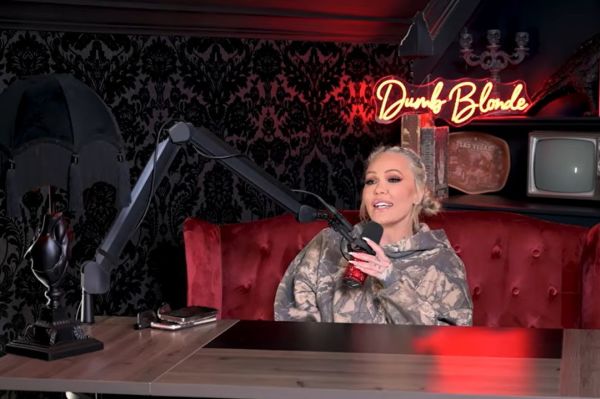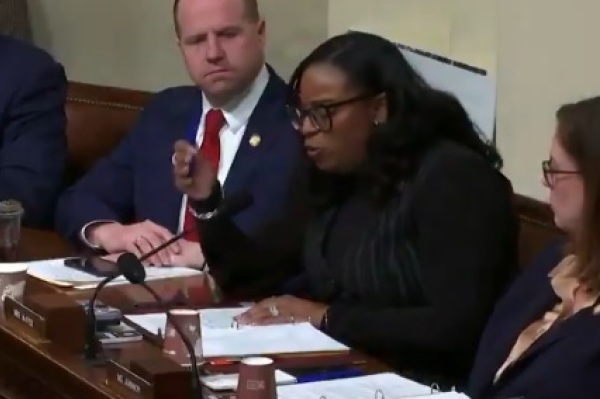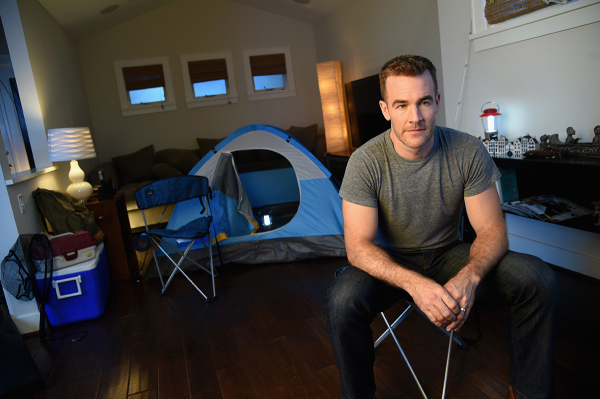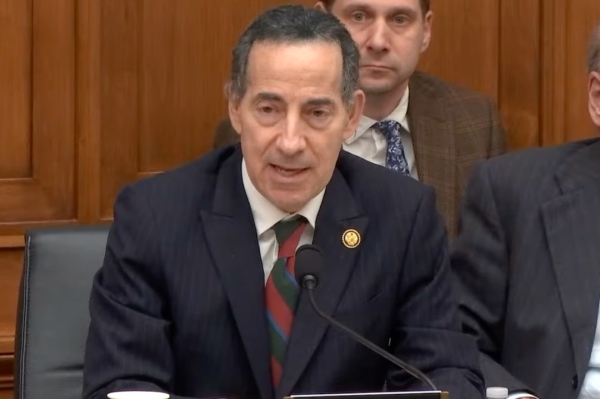In Heaven, Ethnic Boundaries Will Not Exist - So Why Are Boundaries so Prevalent on Earth?
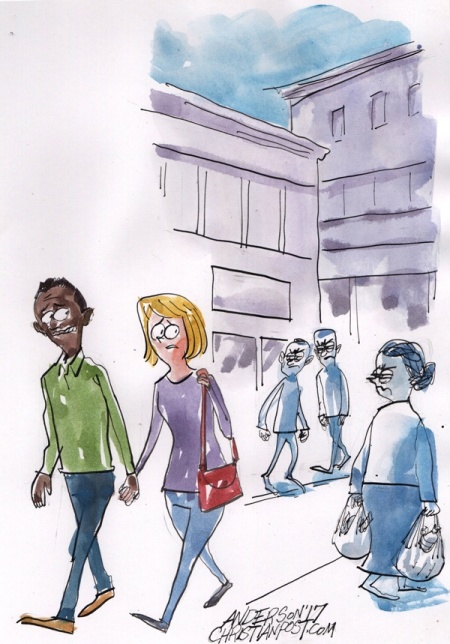
An excerpt from Not Like Me: Learning to Love, Serve, and Influence Our Divided World by Eric Bryant, pastor at Gateway Church in South Austin, professor with Bethel Seminary, creator of The Church Growth Workshop, and founder of www.ericbryant.org.
"The great philosopher Rodney King once asked, 'Can't we all get along? Can't we all just get along?' We have proven throughout history that the answer to his question is 'No!' Throughout history, we have discovered we cannot get along with each other. Ironically, we seem to despise those who look just like us, not just those who do not."
Erwin McManus, the lead pastor at Mosaic, was sharing these words with a predominantly white church in Orange County. The church had invited Erwin because they were very interested in becoming a diverse community, and they wanted to start a service for Latinos or Filipinos.
At that time, I had been volunteering at Mosaic for several months before being asked to serve in the youth ministry. I was facing some challenges as a white youth pastor of a primarily Latino youth group in East Los Angeles. In fact, Erwin found himself having to defend my appointment when one Latino leader had questioned why he would choose a white guy for this position. In the midst of this transition, Erwin had invited me to join him as he spoke at this rather affluent church about reaching out to other ethnicities. I was listening attentively, hoping to learn anything that might help me in my new role.
As Erwin continued his talk that day, he pointed out the bitter and homicidal feuds between the Hutus and Tutsis in Rwanda, the Bosnians and Serbs in the Baltics, and the Protestants and Catholics in Ireland. Though we may not be able to discern the differences, those involved are very aware of those they hate with a murderous passion.
When Erwin asked all those in attendance who had coworkers or neighbors from different ethnic backgrounds to raise their hands, almost everyone did so. However, when asked how many of these coworkers or neighbors had ever been invited over for dinner, hands went down. The atmosphere in the room grew awkward as Erwin went on to say, "If you want to become a diverse church, you need to have friends from diverse backgrounds. Many of us say we want diversity but only if our children don't marry their children."
These well-meaning men and women wanted some tips for starting a service either for Latinos or for Filipinos. They were OK with this type of diversity. I even think they were willing to hear about racial reconciliation. The cold response from the crowd made me think that many people there were not quite ready to live out a life that is reconciled to others, but I must be careful; I could be stereotyping them.
Too often we can be too judgmental of people who are judgmental.
As human beings, we are extremely complex. We punch our younger brothers, but we defend them when they are attacked by others. We act as though we are being protective, but in reality maybe we simply want to maintain our privileges as the only ones allowed to beat them up. We huddle up in homogenous churches, yet we fight insatiably in those churches. In essence, we are all out for ourselves. If banding together with those who don't look like us is more beneficial, then we do so; if hating those who don't look just like us advances our own selfish cause, then so be it. I think we can all admit it: people are selfish. Without God's help we will fight any who stand in our way within our community and especially those outside of it.
The early church miraculously moved toward inclusion in its early days. During Pentecost, the disciples experienced a linguistic miracle: they spoke in the languages of those who had come to Jerusalem for the holiday. Women and men from Libya, Rome, Egypt, Crete, Cappadocia, Mesopotamia, and "every nation under heaven" (Acts 2:5) were transformed by God. As a result, the church was born in diversity. Throughout history, diversity has continued in the universal church, but for the vast majority of local churches, diversity disappeared somewhere along the way. God's passion has always been for the nations, as evidenced throughout the Scriptures from Genesis to Revelation—from the time God chose Abraham in order to bless "all peoples on earth" (Genesis 12:3) to the song that acknowledges that Christ's blood "purchased for God members of every tribe and language and people and nation" (Revelation 5:9). In a time in history when "the nations" live together in the same cities, most of our churches remain homogenous. More often than not, it is not language that keeps us from each other; it is our unwillingness to make the necessary sacrifices to reach and empower the "nations" within our churches.
Recent solutions for ethnic tension do not go far enough. Tolerance has helped culture take steps in the right direction, but it has not gotten us to where we should be. We end up acknowledging that another group has value, but we act as though their value is best appreciated from a distance.
Tolerance has often been touted as a great accomplishment. Leaders in politics, education, athletics, and business promote equality and integration, yet in practice we remain isolated from each other. To be sure, tolerance remains better than animosity, but it's still not as good as genuine concern, care, and affection. None of us truly long to be tolerated; we all long to be loved. Tolerance allows us to survive; love allows us to thrive. As a global community, we need to break through tolerance and embrace love. When we become tired of tolerating others, we should try loving them.
An alternative option for some has been to become "color-blind," but this strategy falls short since color blindness ignores an important part of a person's identity. We should see beyond someone's color so that we get to know the person; but to truly get to know a person, we need to find out what being black, brown, beige, or white is like. As Latasha has shared, "Rather than being 'color blind,' we need to become 'color-brave.'"
Our ethnic background shapes us. At the same time, we are so much more complex than our appearance. Our families, our socioeconomic status, our personality, our strengths, our talents, our passions, and our experiences all make us unique.
In heaven, ethnic boundaries will not exist. So why are boundaries so prevalent on earth? After one of our Sunday gatherings at Mosaic, a non-Christian who was visiting noticed the diverse crowd and said, "If I believed in heaven, it would look like this."
If we aren't willing to diversify in order to connect to God's heart, then we should be willing to diversify to show God's heart to those in our lives who do not yet follow Christ. Our world is much more diverse. My daughter, Trevi, has a better chance of growing up to marry a Chen or a Ramirez than to marry a Smith or a Jones.
Furthermore, people are becoming more diverse themselves. Rather than representing just a mixture of European cultures, Americans are a blend of Latino, African, Asian, Middle Eastern, and European—sometimes all in one person. The path to diversity begins with the mission of Christ. When we choose to reach out and love everyone around us, we will experience a glimpse of heaven on earth.
Dr. Eric Bryant serves with Gateway Church in Austinas the Campus Pastor for Gateway Church in South Austin and as part of the teaching team along with Senior Pastor John Burke. Known for their mottos: "no perfect people allowed" and "come as you are, but don't stay that way."
From 1998-2010, Eric served as part of the leadership team with Erwin McManus at Mosaic in Los Angeles, a church known for its creativity and diversity. The four years prior to that he helped plant a church in Seattle, WA.
Eric's Foundation exists to help churches, non-profit organizations, and businesses find their calling, raise up leaders, and reach new people through training events, workshops, books, and www.ericbryant.org.
Eric lives with his wife, Deborah, his son Caleb and his daughter Trevi near downtown in Austin, TX.










